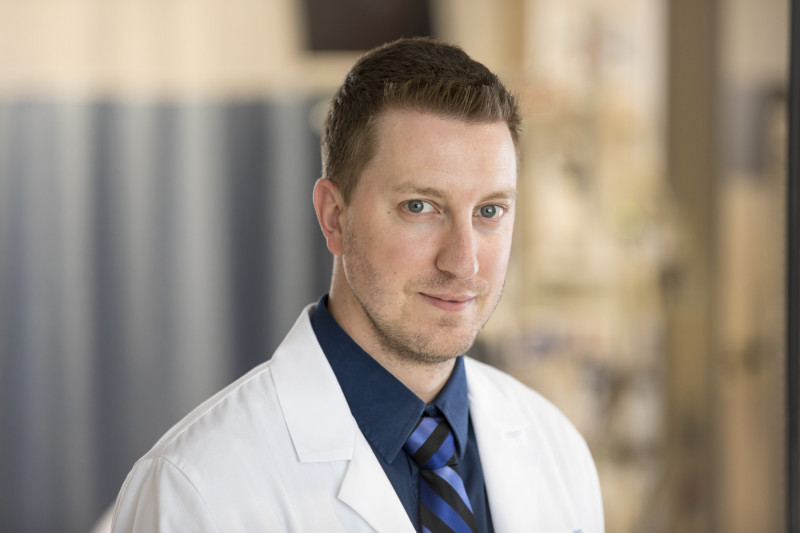Four Years Later: Lessons Learned and Reflections on the Pandemic
The timing feels different for everyone. For some, four years feels like a lifetime ago. For others, it feels like it was a matter of weeks ago. No matter how the timing feels for you or me, we all experienced the same event exactly four years ago: the COVID-19 pandemic.
Healthcare workers on the front lines were among those deemed “essential workers.” While much of the world learned to work from home and socialize through video calls, doctors, nurses, and clinical staff were caring for patients. In a world of masking and social distancing, healthcare professionals were face to face with the virus that locked everything down.
On March 9, 2020, Ohio reported its first cases of COVID-19.
On March 20, 2020, the state reported the first COVID-19 related death.
Marion, in the very beginning of the coronavirus pandemic, had national attention. In April 2020, the Marion Correctional Institution had become one of the nation’s largest hot spots. During that same time, Johns Hopkins University ranked Marion County as the second in the nation for infections per 100,000 people.
It wasn’t until May 11, 2023, that the federal government declared the end of the COVID-19 public health emergency.
For many frontline workers, there’s a feeling they never had time to grieve the loss of life they were seeing. But they also share the feeling of gratitude. Even four years later, there’s a lot to reflect on.
The following is a Q&A with Joel Provenzano, MD who specializes in critical care medicine and pulmonary disease at OhioHealth Marion General Hospital. He shares his thoughts looking back on the pandemic, four years later. He opens up to share the lessons he learned on resiliency, the faith he has in his team, and why he won’t look at a traffic light the same way ever again.

Q: It’s been four years since the outbreak – how are you feeling looking back on it? Does it feel like it has been four years?
A: Honestly, it feels like almost no time has passed. [In the beginning], everyday suddenly seemed the same for a lot of people, but for those of us on the "frontlines" we had the exact opposite experience. Our normal lives went into overdrive. There are memories each of us have from 2018 and 2019 that still feel they are only a year or two old. I don't think that the year-plus since the "end" of the pandemic has yet been enough time to feel like this is fully behind us.
We all feel we went through something that no one else experienced, almost like we were removed from society for a period of time, a persistent quarantine. Though others could "bubble," we were in our own bubble. I have spoken since with friends of mine who were in combat in Iraq 20 years ago. I helped them process through their PTSD, their inability to explain to anyone what the experience is actually like, along with their triggering emotions and symptoms. Now they help me through mine.
I still flashback; most recently on a drive home from a late night at work when the sun was down. I distinctly recall pulling up to a stoplight and seeing the red and green lights and feeling a mixture of comfort and anxiety. For three Christmas seasons, I would notice that the red and green stoplights were sometimes the only "festivity" I was afforded to have. So, I felt that comfort, that Christmas Spirit, but also the same "long days and back again the next day" of the pandemic. Many of us went weeks at a time without seeing our houses or families in the daylight. So, for some of us it still goes on. Another patient in the ICU brings back the same worries. Will they get better or are we at war again?
Q: What lessons did you learn during the pandemic that changed how you look at life and your work now?
A: That being said, in the same vein as above, our ICU trauma-bonded together. Yes, a few coworkers moved on to other things, but there's that steeliness that you get knowing you survived together and could depend on each other that makes us closer and more cohesive. We have a certain trust in each other that can't be explained. We have always described our unit as a family, and there's a lot of truth to that. I would say that work in many ways has gotten tougher. We have been tried, tested, and survived. This happens only because of our strength and commitment to each other and to our patients. They are our family as well.
Q: How are you proud of all OhioHealth associates and your teammates at Marion General Hospital for making it through?
A: I would echo a lot of what I said above. They are family. I say it to anyone I can, to this community, 46 Ohio counties, and 5 total states who trusted their patients to our care: I am proud of every nurse who held a dying patient's hand when their family couldn't come in, every respiratory therapist who quickly cleaned and moved ventilators to where they were needed most, every patient care aide who bathed patients so they could feel comfortable, every environmental service worker who efficiently prepared rooms for the next new patient, every maintenance person who diligently converted and maintained rooms to expand our ICU coverage, and every person along the way that contributed in any manner: you are a blessing to the people we serve and I am blessed to have served with you.


